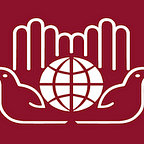Milestones Testimony: Ferdinand von Habsburg-Lothringen
November 1, 2017, Juba — Many of us need a core set of values in order to anchor our lives and ourselves. I, for one, feel this profound need as I continue to provide humanitarian assistance in the Horn of Africa, after two decades of professional experience in Sudan and South Sudan. My experience has allowed me to witness how human beings, when faced with enormous, apparently insurmountable challenges, continue to seek a way forward; we refer to this strength of the human spirit as “resilience.” Above all, I believe that my time in the Horn of Africa has taught me to reflect upon and fairly evaluate the needs of stakeholders, partners, and recipients. Three keywords have become central to my work and my life: community, reflection, and change. These words form the very basis of our humanity, and are a call to the future and to action.
“I will call you for one minute.” No seven words have held more meaning for me than these; I first heard them on the evening of July 28, 2016, through the crackle of a poor telephone connection. Years earlier, I had met Dr. Kevin Cahill in his office on the edge of Central Park. I had come for a thorough medical examination, and as he looked me over, he asked me about my work in South Sudan. Over the course of our conversation, he revealed himself as a consummate thinker, storyteller, and professional, steeped in humility, warmth and humor.
Now, as I crawled on hands and knees across the floor of an office building, ducking under the windows to avoid a storm of bullets outside — a barrage that, I later learned, killed over 250 people — Kevin’s seven words were my lifeline to someone who cared, someone who knew what I had experienced. Over the course of those four terrifying days, his daily “one minute” phone call reassured me that despite the distance, despite terrible situations and impossible commitments, human beings will persist in reaching out, in building connections, in recognizing the extraordinary gifts of others. This persistence is, in my view, the antidote to cynicism, impatience, and selfishness.
Kevin’s next call found me on the floor of the Comboni Missionaries in Juba, trapped by a second volley of gunfire. I was with half a dozen other international missionaries, and all of us lay facedown on the floor as more machine gun rounds, tank shells, and rocket-propelled grenades crisscrossed our compound–this time apparently in a celebratory mood. The minute was an hour, his words–whatever he said, I cannot recall now–were comfort and solidarity, filling my bruised and bewildered body with hope. Even after he ended the call, that “one minute” continue to comfort me, to reassure me that I was alive and loved, no matter what happened tomorrow. Kevin’s call, and the calls I received from his son, Brendan, and from family and friends, taught me that there is no replacement for love, support, and true friendship.
In the winter of 2002, I returned to my hometown, Geneva, as a stranger in a familiar land. I had entered into a new phase of my life: still lacking in confidence in my skills as a humanitarian, and shaken by the raw violence I saw while stationed in the Nuba Mountains of Sudan, I arrived at IDHA 9. Unbeknownst to me, this would become a defining moment in my life. Not only did I walk away from the IDHA with the professional skills and tools I needed, but I also formed friendships with people who spoke the “aid language,” and who approached their work with spirit, enthusiasm, and genuine curiosity. Surrounded by so many like-minded people, I thought I had joined the IDHA in an exceptionally vintage year, or else the course had filled some niche in the humanitarian community. Friendships bloomed and strategies developed–bonds that, in many cases, remain unbreakable, connecting us across borders and oceans, coming together and forming actions, studies, shared analyses, and reunions in the most unexpected of places.
There was a deep-seated sense of respect and community, reinforced through the kind of honest, open reflection that inspires confidence, in spite of our faults and fears of inadequacy. I thought perhaps I had lucked into IDHA 9, but as I pursued the MIHA–attending courses in Barcelona, New York, and Berlin, all at times of my choosing, thanks to the flexibility of the program–I came to realize that Fordham and the IIHA had tapped into a critical need in the humanitarian world, and had met that need head-on, with innovation and first-call staff and support teams. When I arrived in Geneva for IDHA 9, I immediately felt at home.For many of us, it was the first time we had been afforded a chance to think about our personal experiences within the international framework, and to consider the experiences of others support and encouragement–an educational approach that held value for both students and tutors.
As an IDHA alumnus, I have a responsibility to develop this new philosophy and answer the hard questions. I now have the ability to look honestly at my life and my choices; to avoid the generalizations, the preferred political narratives, and the simplifications that stymy our efforts. The IDHA, above all, allows its students to think creatively in a field that adheres to tradition and often refuses change. In the end, the hours of reading and reflection created a space in my mind where I can question and challenge, and find myself anew.
Ferdinand von Habsburg-Lothringen
This is an abbreviated version of Ferdinand von Hasburg-Lothringen’s testimony featured in Milestones in Humanitarian Action, available for purchase on the Fordham Press website.
